When God’s hands brush the keyboard of the world… Stephen Komarnyckyj on his impressionistic translations of Bohdan Ihor Antonych, a Ukrainian Lemko 20th century poet whose work, being a "fusion of literary talent and a pagan, rebellious spirit," remained hitherto largely unknown.
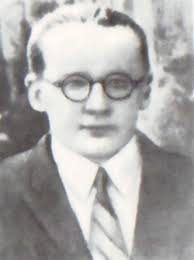
Antonych proudly declared himself a pagan and his poetry is redolent of the peasant’s affinity with nature. Yet he was, like John Clare, another superficially peasant poet, a deeply read and profoundly skillful writer.
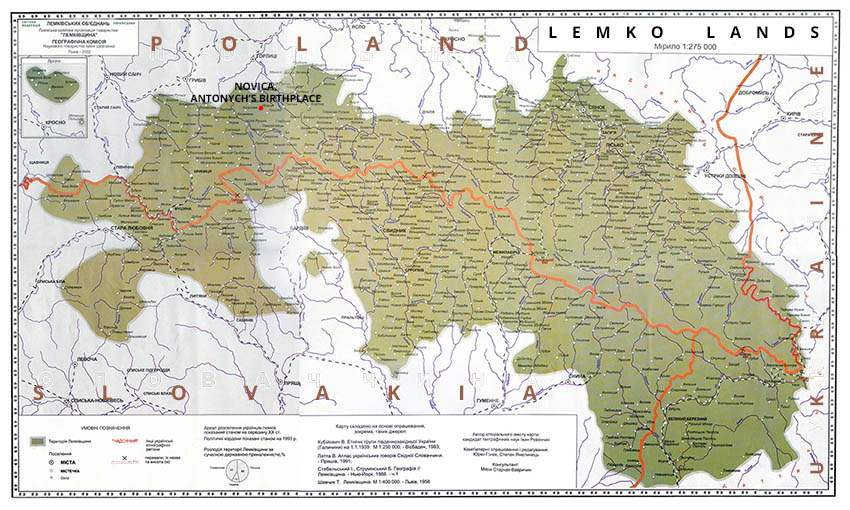
In his poetry, the boundaries between the narrator, the natural world and the music of the poems become blurred within an ecstatic pagan celebration of life. His boyish face reflects his almost perpetual sense of rapture, not only with nature but with the human world. He can exalt in the sound of jazz from behind a wall in an alleyway, a heap of rusted cars, and a cloud shadow sailing over the pasture. This seemingly effortless febrile absorption in life masks his dedication to his craft.Moss warms “like cat fur,” and the nocturnal forest becomes an orchestra playing music that manifests itself as light.
Antonych was only 27 when he died, but lived several lives in one lifetime, producing six collections of poetry, reams of prose, an opera libretto, a novella, an unfinished novel, as well as editing a couple of journals.
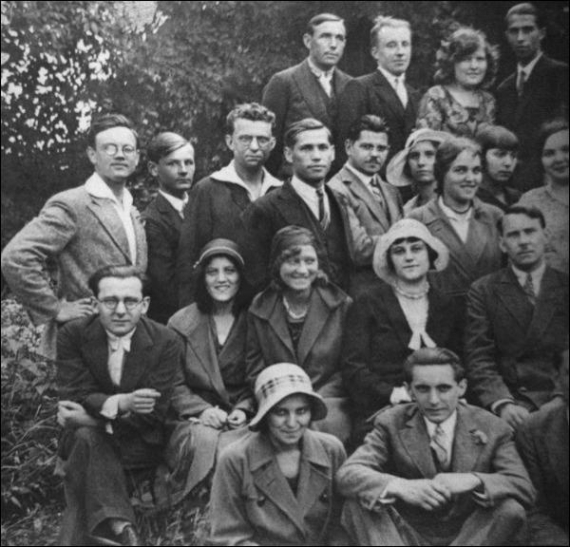
Read also: Ukraine’s Executed Renaissance and a kickstarter for one of its modern successors
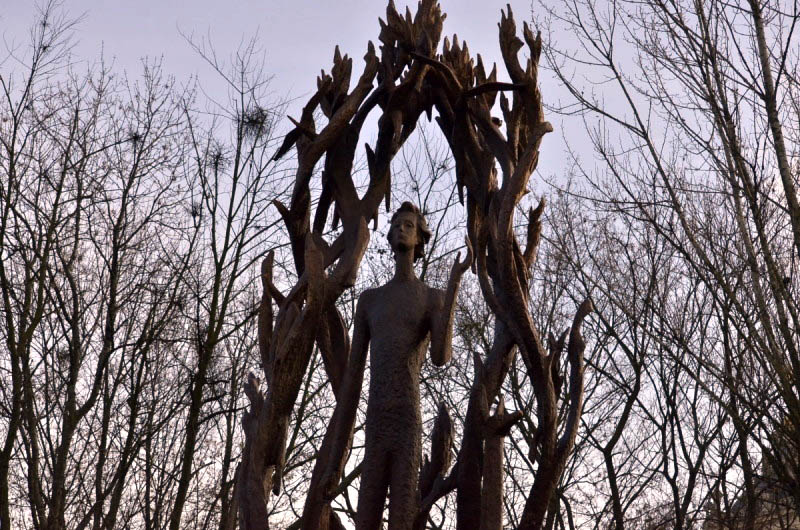
Related: Let the songbird out of the cage – vote for Ukrainian literature
The Empire, of course, always strikes back and, indeed, usually delivers the first blow. The long standing animosity towards Ukrainian culture emanating from Russia was summarized in a Chatham House paper of 2012:However Antonych, of course, lived and died in a western Ukraine under Polish control. During this period the Polish state actively pursued the assimilation of Ukrainians via a program of polonization. Polish language was imposed upon Ukrainians and they were required to formally identify as Poles in order to access certain occupations. Ukrainians, of course, are both perpetrators and victims within the history of their colonization by other peoples. However, the cultural repression they experienced explains why their literature was marginalized internationally. Poland and Ukraine are embarking on a difficult process of reconciliation. Russia remains opposed to the very existence of Ukraine and still focuses on damaging the country’s image internationally.Taras Shevchenko’s legacy, Ukrainian language, and the Ukrainian ‘national idea’ of the last two centuries... appear to be meaningless, second-rate or blasphemous to a large number of Russians. Generations of Russian intellectuals have turned belittling of the Ukrainian language and culture into a part of the Russian belief system alongside anti-Tatar and anti-Muslim stereotypes. But whereas the latter are built around national differences, what makes Ukraine stand out in this list is a dismissive attitude to any assertion that national differences exist (Bogomolyov and Lytvynenko, 2012).
Antonych’s work, and that of many other Ukrainian poets, survives because of that unique spirit which we have in part described, a fusion of literary talent and a pagan, rebellious spirit.
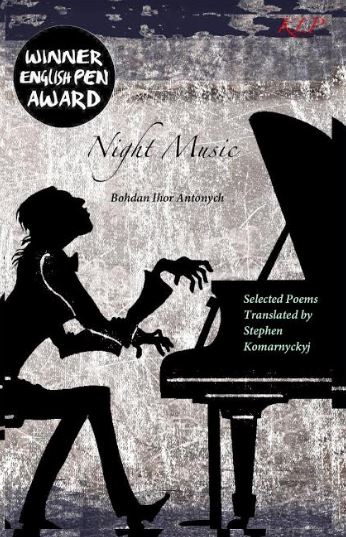
If we are to render Antonych’s poetry effectively into English we must reckon with the traditions of both languages. The poems in this collection are what Ukrainians might term a perespiv, a song over a song, and attempt to render his poetry as contemporary poems in English. I have, like Antonych himself, sought to intoxicate myself with his songs and to translate more intuitively. This book strives to capture the beauty, emotion and imagery of his poetry using the resources of the English language. The reader of a translation will always inevitably be listening to the voice of a translator. However, the translator must have listened carefully to the voice of the author and tune his language so it resonates at the same pitch. A translation of this kind is not a transcription but a duet, a poet’s interpretation of a poet. I have structured the book so that it has the emotional logic of a collection of English poetry. The reader will perceive echoes of Dylan Thomas, W.B. Yeats, John Keats, and Percy Bysshe Shelley in these poems. Antonych’s poetry is both richly Ukrainian and yet it” has no nation but the imagination” (Walcott). His work belongs to that great literature which speaks to the one abiding collective, humanity. Below are two of Antonych's poems.Poets are too often worked dead by translation. The substitution of one language for another, the attempt to match word for word the creative potential of the original, which is animated by virtue of the imagination charging the language, is the perfect means to making a poet redundant in a foreign language (Montale 9).
We return slowly to the earth, our cradle.
Green tangles of vegetation bind us, two fettered chords.
The razor sharp axe of sun hews at a trunk,
The music of moss, tenderness of the breeze, the oak a proud idol.
In the wastage of days that bear us the body, warm and obedient
Grows with itself, two siblings, two flowers of fidelity.
The moss warms us like cat fur. You transform the stars into a murmur
And blood into music and greenery. The sky glows.
At the edge of day, in the ocean of heaven, the winds of the future sleep
And our devoted constellations wait under the frost,
While earth does not instruct them to arise. We abandon things,
To be borne, to grasp the stars in pure ecstasy.
The yearning of blood hurts. Eyebrows sharp as two arrows,
While above us a wall of melody echoes
The pinions of a breeze. Our fate pinned on the planets.
You burn with growth, thirsty as the earth. Become all music.
Bohdan Ihor Antonych
Translated by Stephen Komarnyckyj
First published in Modern Poetry in Translation Issue: Series 3 No.14 - Polyphony.
The refraction of the moon repeats itself in the clouds, a song,
Cloud on cloud forming a silver wall, below which the foxes bark.
Leaves dangle from the stars in oblique ropes,
The mushrooms chime their plates of rust colour,
In the forest choir,
The leaves of the oak form
A lush foam, a surf, that booms and trumpets
The unwritten law of night.
Wolves bring their sacrifice of blood and flesh,
Wiping their muzzles on musical flax.
Night of predatory law and dark magic. In the marsh things knead
A dull red dough of mud. Owls harmonise treason.
A star wrinkles its eyebrow at the moon,
Flower sticks to flower,
In a dew thick as paste,
The oily greenery
Becomes this coarse fabric of darkness.
The angles of roots are coiled music, plaiting
The melodies that foam within.
This is the heart of the forest,
The horizon's secret,
Where storms exhaust themselves and lightning
Is a razor whipped across a razor,
Each broken human dream.
Its wings sweep across the earth, adorning roofs
With wreathes for the marriage of fire.
Terror, a subterranean child that cries each night
In that place where beyond knowledge of feeling or ruin
The incomprehensible, ancient speech surrounds us.
The river. Spring grinds its ice.
Bohdan Ihor Antonych
Translated by Stephen Komarnyckyj
First published in Modern Poetry in Translation Issue: Series 3 No.14 - Polyphony
-
Bogomolyov, Alexander and Lytvynenko Oleksandr, January 2012. A Ghost in the Mirror: Russian Soft Power in Ukraine. Briefing Paper. http://www.chathamhouse.org/publications/papers/view/181667 (Accessed 19 August 2016)
-
Plokhy, Serhii. The Cossack Myth: History and Nationhood in the Age of Empires. Cambridge University Press 2012.
-
Montale, Eugenio. The Coastguard’s House. English versions by Jeremy Reed. Tarset: Bloodaxe 1990.
-
Walcott, Derek. The Schooner Flight. (Original Source: Poems 1965-1980 (Jonathan Cape, 1980)) http://www.poetryfoundation.org/poem/177932 (Accessed 15 April 2014)




